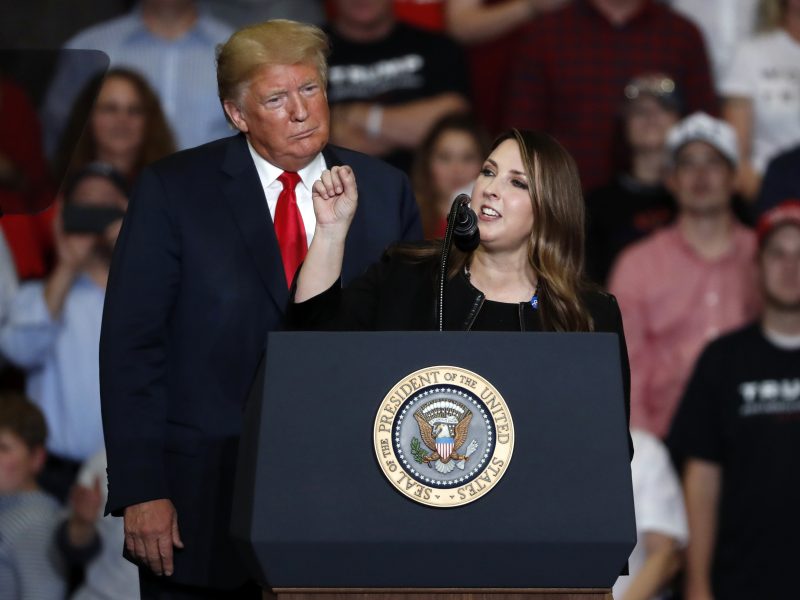The 2024 general election has only just begun, and Donald Trump looks prepared to sail to yet more GOP nominating contest victories in Nevada and South Carolina in the weeks to come.
But the campaign for the White House also begins with his financial operation — the entities devoted to electing him — on pretty shaky ground. That precariousness was reinforced as these entities filed their year-end reports with the Federal Election Commission by the midnight deadline.
The big reason is the legal bills. Two of Trump’s political action committees spent a combined $55.6 million on legal costs in 2023, as Trump faces major judgments against him in civil court as well as his continuing defense against four criminal indictments.
That’s about a quarter of all the money raised across Trump’s various committees. And that’s before many of Trump’s most significant legal battles — his criminal trials — truly touch off. Legal spending also accelerated somewhat in the second half of 2023, putting Trump on pace to spend about as much on legal fees in 2024 as his various entities currently have in cash reserves: $70 million.
The impact of the legal spending is particularly acute for Trump’s leadership PAC, Save America. It boasted a $100 million war chest as of early 2022. At the end of 2023, it was left with just more than $5.1 million in cash — after raising just $6 million and spending $26 million on legal costs in the second half of the year.
The PAC was kept above water thanks to $30 million in money transferred from Trump’s MAGA Inc. super PAC. But that also meant MAGA Inc. sent more money to Save America (effectively for legal fees) than it spent in operating expenses and other actual campaign-oriented spending ($25 million).
(Campaign committees are a candidate’s most direct way to fund a campaign. Leadership PACs can be used for other political purposes. And super PACs, unlike these other two, can accept unlimited funds but are supposed to be independent from a politician. For more, see here.)
The heavy PAC spending on legal fees places much of the burden for Trump’s actual campaign on his campaign committee and the Republican National Committee. But those entities aren’t in particularly great shape either.
Trump’s campaign committee in the fourth quarter spent more money ($23.6 million) than it raised ($19.1 million). That means, like his political action committees, it is seeing its cash reserves decline heading into the general election. It had $33 million at year’s end.
And the Republican National Committee is on its worst financial footing in a long time. It had just $8 million in cash at the end of 2023, having spent more than it raised for the year. According to campaign finance expert Rob Pyers, 2023 was its worst fundraising year since 2013 in terms of raw dollars and its worst since 1993 when you adjust for inflation.
How little is that $8 million? The RNC had $72 million in its coffers at this point in the 2020 election cycle. It also had $90 million as of mid-2021. It amassed those war chests thanks in large part to having an incumbent president until January 2021, but there remain big concerns about the RNC’s ability to raise money.
If there’s some good news for Trump’s side, it’s that President Biden and the Democrats haven’t yet built a massive advantage — despite Trump facing a more competitive nominating contest than Biden has. They have about $117 million across their various committees, compared with Trump’s $70 million. And both Trump and the RNC could soon benefit from fundraising agreements with the RNC and state committees that become available if and when he’s the nominee.
But as Trump’s legal problems have mounted, it’s clear they’ve come at a cost — literally.








